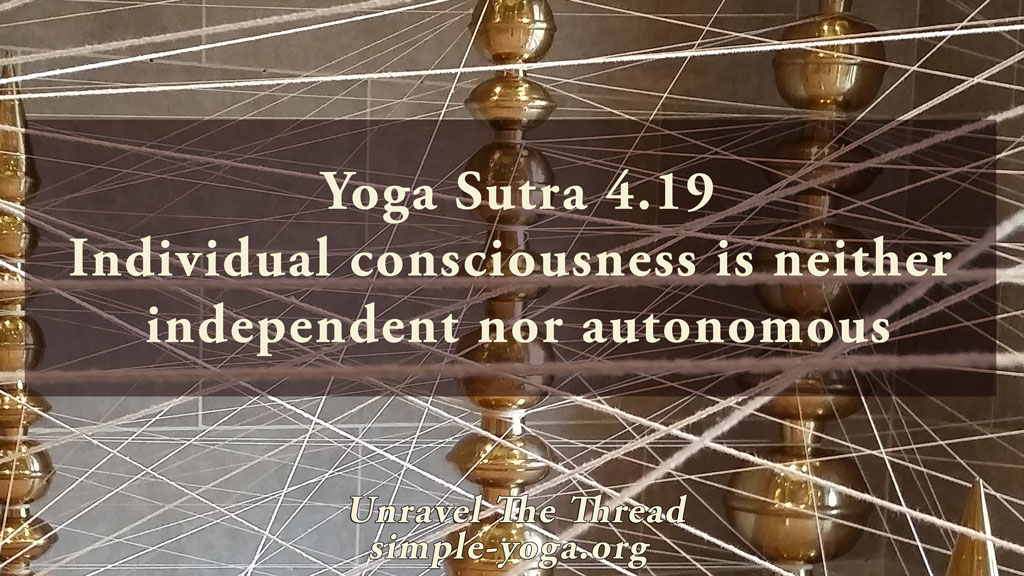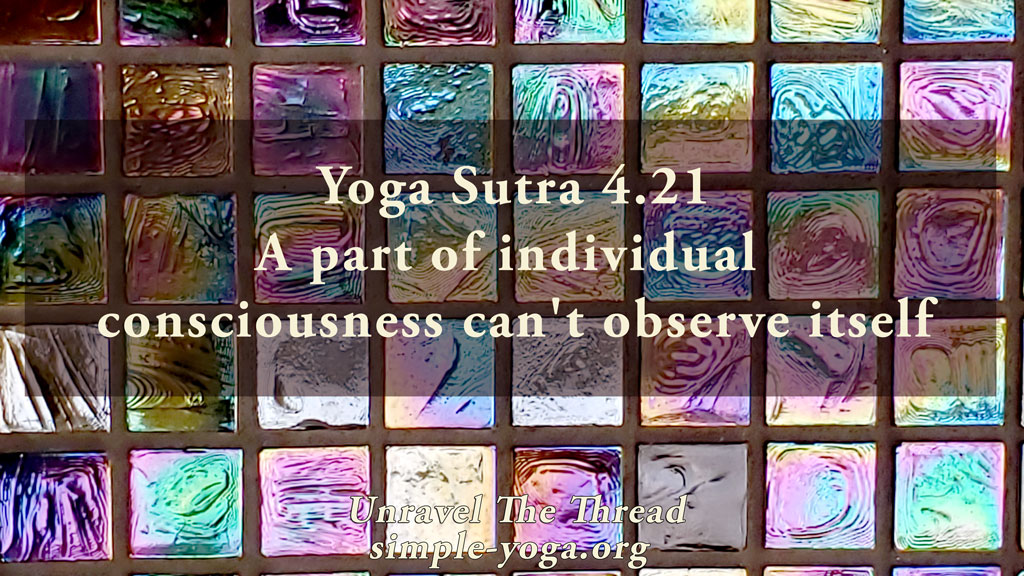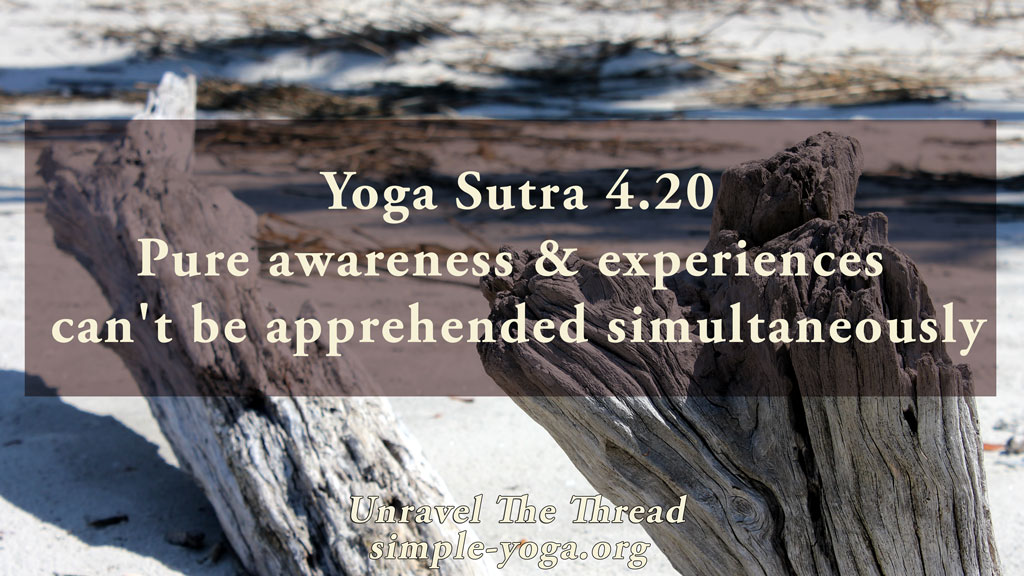
4.19 Individual consciousness is neither independent nor autonomous
October 10, 2022
4.21 One part of individual consciousness can’t observe itself
October 24, 2022
4.19 Individual consciousness is neither independent nor autonomous
October 10, 2022
4.21 One part of individual consciousness can’t observe itself
October 24, 20224.20 Pure awareness and world of experience can’t be apprehended simultaneously

4.20 Both pure awareness and the world of experience cannot be apprehended simultaneously.
This sutra offers one perspective on the process of attending. You can either focus your awareness on the world of experience or on the universal awareness, but you cannot do both simultaneously. This aphorism echoes the dichotomy presented by sutras 1.3 and 1.4: Either you direct your attention to your natural state of awareness and wholeness, or you focus on your doings and becomings. Sutras 1.20 and 1.23 offer a similar two-pronged approach to reaching integration, either by directing your attentional resources with trust, vitality and memory towards stillness and wisdom, or by directing your awareness towards pure aliveness with complete surrender. The first approach focuses on the world of experience, while the second emphasizes pure awareness as the focal point. This is reiterated in sutra 2.18, by saying that the world of experiences can be used as a system for enjoyment when the focal point is the experiences themselves. The second approach is to understand that the world of experiences can be used as a way towards liberation by noticing how the temporal nature of all experiences highlights the all-encompassing permanence of pure aliveness. Chapter Three of the Yoga Sutra also offers a similar idea in sutras 3.50 and 3.51, by saying that discernment of the difference between pure consciousness and individual awareness brings about liberation. You make a choice to focus on pure aliveness. This message is reinforced by inviting a release of the focus on the world of experience by letting go of the attainments listed in the third chapter of the Yoga Sutra.
What is your intention when you direct your awareness to the world of experience?
What happens?
Do you notice a difference when you focus on aliveness itself? If the process of focusing on aliveness itself uncovers distractedness, there may still be a need to empty yourself from whatever imprints that may be triggering distractions. What happens when you try to focus on both experience and pure aliveness?
As usual, one more way of exploring the meaning of this sutra is by chanting it.
You can choose to chant it in its traditional form with some of the words coming together:
4.20 eka samaye cobhayānavadhāraṇam
एक समये चोभयानवधारणम् ॥२०॥
Another option is to chant each word in the sutra individually:
- eka
- samaye
- ca
- ubhaya
- anavadhāraṇam
If you prefer, you may listen to the podcast:
This is an excerpt from the book Unravel the thread: Applying the ancient wisdom of yoga to live a happy life
If you find Simple-Yoga.org and Unravel the thread useful, consider supporting my labor with a donation, you may also donate using PayPal or Venmo. Thank you!
